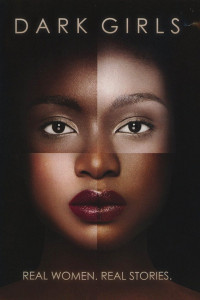
Political Perspectives presents Sojourner Truth Radio...Today, we broadcast a one-hour special with award-winning actor and filmmaker Bill Duke. He joined us to discuss "Dark Girls," a companion book to his documentary of the same name, which explores the phenomenon known as colorism within communities of color and across the globe. Why is light skin favored over dark skin? What price to Black women who are dark skinned, as well as light skinned, have to pay? What is the impact on children? Who profits from a definition of beauty that applies to less than half of the world's population?
Dark Girls is a 2012 documentary film by American filmmakers Bill Duke and D. Channsin Berry. It documents colorism based on skin tone among African Americans, a subject still considered taboo by many black Americans. The film contains interviews with notable African Americans including Viola Davis. It also reports on a new version of the 1940s black doll experiment by Kenneth and Mamie Clark, which proved that black children had internalized racism by having children select a white or a black doll (they typically chose white) based on questions asked. In the updated version, black children favored light-skinned dolls over dark-skinned dolls.
The documentary takes a look into the trend of black women all over the world investing in the multibillion dollar business of skin bleaching creams. Duke and Berry also examine how black women are trying to look more Caucasian while white women are trying to look more ethnic. “White women are risking skin cancer and tanning booths twice a week, Botoxing their lips, getting butt lifts to look more ethnic and crinkling up their hair.”
The film was shown to a sell-out crowd at the Pan African Film Festival in Los Angeles, April 2012. Interviewed on NPR, Duke recounted an reaction he received at another showing, which indicated that colorism is not easily discussed and was asked by someone, 'Why are you airing our dirty laundry?' His answer was, "Because it's stinkin' up the house!"
The Association of Black Psychologists said that, "Dark Girls gives us an opportunity to take a soul-searching look at the effects of racism on the self-image of Black women personally and collectively, particularly as it relates to complexion, so that where healing is needed, we can heal; where our tools for resilience and defying the lie protected us, we can lift them up for celebration and increased use."
- KBOO


